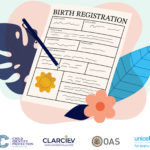
Legal Memorandum Right to know one’s origins – Gauvin-Fournis and Silliau v. France
In Gauvin-Fournis and Silliau v. France the European Court of Human Rights (ECtHR) recognised, by a slim majority (4 votes to 3), that France, in refusing the applicants access to any information relating to their origins, whether concerning their donor, their biological siblings or their medical history, had not violated their right to respect for private and family life, provided for in Article 8 of the European Convention on Human Rights (ECHR). The Court found that France had not exceeded its margin of appreciation:
- by applying retroactively to applicants conceived before the Law of 29 July 1994 and to their donors, the principle of absolute anonymity that emerged with that Law.
- by making access to all the donor’s information conditional on consent;
- denying donor conceived people access to the donor’s medical history and to the number and identity of their biological siblings
- assuming absolute anonymity for all donors post-mortem;
In this legal memorandum, Child Identity Protection (CHIP) sets out the reasons why it aligns itself with the position of the dissenting judges, considering it to be in line with the rights and best interests of the child, as set out in international standards.






